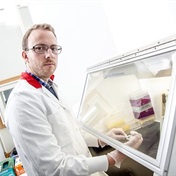"Stem cell research is progressing so rapidly and has sparked a lot of interest in translational (research including) among patients in hopes for therapies," said Insoo Hyun, lead author of the paper outlining the guidelines and an associate professor of bioethics at Case Western Reserve University School of Medicine in Cleveland.
"At the same time," he said, "legitimate science is speeding ahead and getting to the point where there needed to be more of a road map to take the basic knowledge to clinical applications."
Although Hyun had not heard of patients actually been harmed by so-called stem cell therapies, he said he feared that "it's only a matter of time". The new guidelines were published in the December issue of Cell Stem Cell.
Experts hailed the move
"We clearly need guidelines for around the world to make sure that appropriate research is done before clinical work is undertaken in patients," said Paul Sanberg, distinguished professor of neurosurgery and director of the University of South Florida Centre for Aging and Brain Repair in Tampa. "We see desperate patients all the time and want to make sure that any therapies they take come from responsible research groups."
"There is tremendous confusion about the two types of stem cells - embryonic stem cells and adult progenitor stem cells. The difference is monumental, and needs to be clarified," said Dr Darwin J. Prockop, director of the Texas A&M Health Science Center College of Medicine Institute for Regenerative Medicine at Scott & White, who also holds the Stearman Chair in Genomic Medicine at the centre.
In an accompanying commentary, Canadian researchers analysed 19 websites unearthed by a regular Google search, all of which peddled expensive stem cell therapies for everything from stroke to allergies.
Different clinics in China (Beike Biotech), the Ukraine (ACT) and elsewhere claim to have treated thousands of patients for neurological disorders including multiple sclerosis, Parkinson's disease, spinal cord injury and Alzheimer's disease, congenital conditions such as autism and cerebral palsy, as well as allergies, heart conditions and even cosmetic procedures. However, the University of Alberta team was unable to find any studies that had even investigated stem cell therapy for Parkinson's disease or for Alzheimer's, for example.
Nowhere, apparently, was there any authentication of whether the stem cells actually were stem cells, or where they had come from. Stem cells most often, but not always, came from the patient's own bone marrow. Others reportedly came from aborted foetuses, animal tissues or donor tissues.
New guidelines to guide research
Website information tended to be heavily skewed toward the alleged benefits of the process, and away from its risks. And the price? According to the paper, when advertised, the average cost of these therapies - excluding airfare and accommodation - was $21 500.
The new guidelines are meant to guide research toward what is practical and responsible, Hyun said. Previous scientific guidelines and regulations have regulated human-subjects research and clinical research in general, as well as gene transfer research, but not stem cell research, which poses a number of independent issues.
"Most of the time, stem cell products are presenting entirely novel products that are unpredictable in humans," Hyun said. "Unlike drugs, you can't just create a batch and put them on the shelf and expect they will be the same. We need uniform quality control and manufacturing. And if they're embryonic or pluripotent stem cells, they could form unwanted tissues or tumours. So, we have to be very careful about following up and monitoring patients."
The guidelines were written by a task force of stem cell specialists from 13 countries. It addressed issues of ethical review, quality and safety of the stem cells; voluntary informed consent of participants in research projects along with careful monitoring of these volunteers; and caution in using stem-cell-based therapies outside a research context.
Despite its promise, stem-cell based treatment is the standard of care for only a few diseases and conditions. These include heamatopoietic stem cell transplants for leukemia and epithelial-stem-cell-based treatments for burns and corneal (eye) disorders. Still, the potential of stem cell research is vast, experts said. Although research has not yet translated directly into abundant therapies for patients, the gains have been substantial, albeit indirect.
"For patients, it's not surprising that there are no direct applications, but what is often lost to the public is that so much knowledge had been gained from stem cell research," Hyun said. "The advancements for patients are going to come sooner through these indirect routes, not through direct cell-based therapy." – (HealthDay News, December 2008)




 Publications
Publications
 Partners
Partners














